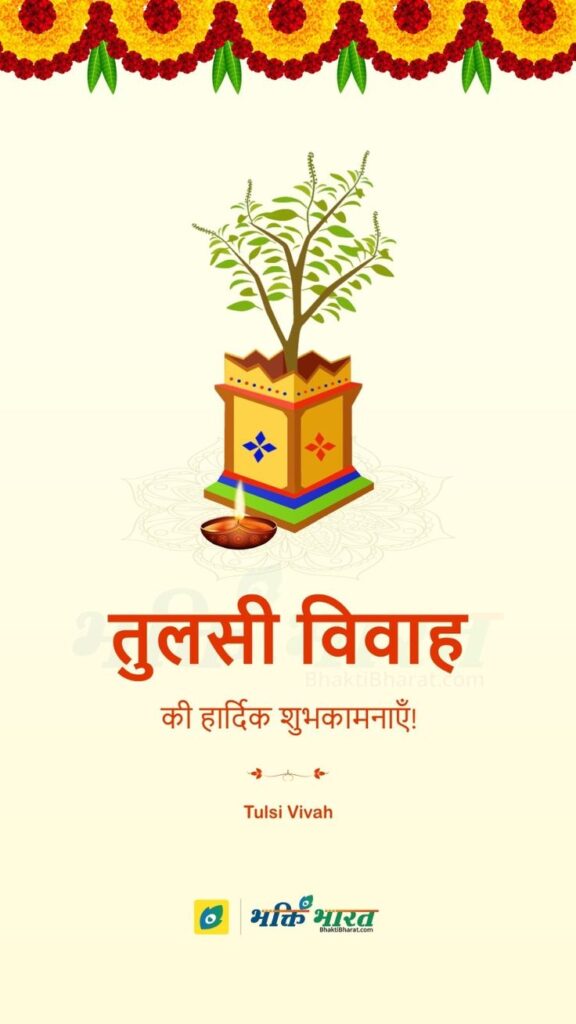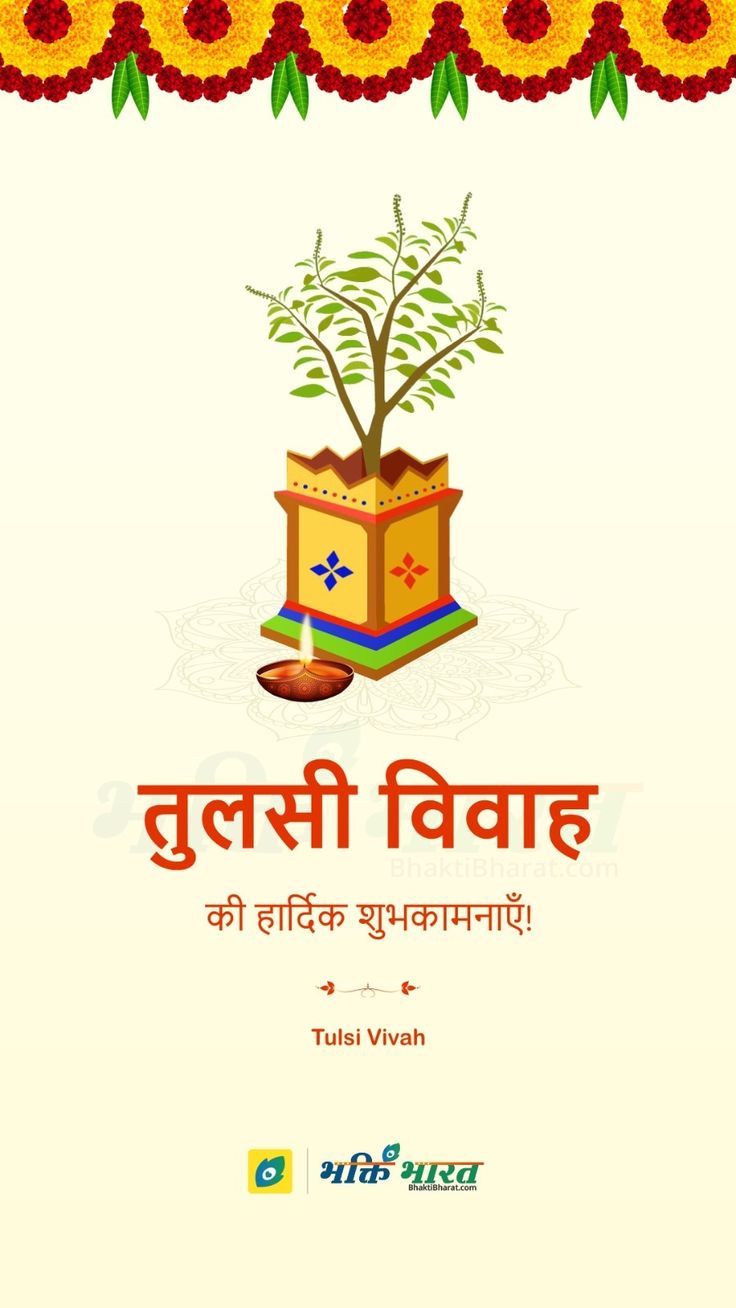
Table of Contents
Tulsi Vivah Katha: The Sacred Story of Divine Union
Introduction Tulsi Vivah, a revered Hindu festival, celebrates the mystical wedding of Tulsi (a holy basil plant) to Lord Vishnu, often represented as Shaligram or in the form of Lord Krishna. Occurring during the Hindu month of Kartik (usually between October and November), this ceremony is significant in Hindu households and temples across India. This symbolic marriage is more than a ritual; it embodies themes of devotion, penance, and the sanctity of marriage in Hindu culture. The story behind Tulsi Vivah reveals layers of spirituality, mythological beauty, and profound moral teachings.
The Origin of Tulsi Vivah The origins of Tulsi Vivah are steeped in the lore of Vrinda, a devout wife of the demon king Jalandhar. Jalandhar, endowed with strength by Vrinda’s unwavering chastity and devotion, became a threat even to the gods. His power grew to such an extent that he started wreaking havoc, believing himself invincible. But Vrinda’s piety shielded him from any harm, as her devotion was so strong it made him undefeatable, and even the godly interventions had little effect on his growing reign of terror.
The Dilemma of Lord Vishnu Faced with Jalandhar’s unstoppable power, the gods sought help from Lord Vishnu. However, Lord Vishnu was faced with a moral conflict: to protect the universe, he would have to find a way to break Vrinda’s devotion, which was a sin he would have to bear. Resolving to maintain cosmic balance, he took on this responsibility, knowing the path forward would cause pain to an innocent but was crucial to ending Jalandhar’s reign.
Breaking the Devotion Vishnu, transforming into Jalandhar’s appearance, approached Vrinda to shatter her unwavering loyalty. She, deceived by the form, let her guard down, unknowingly breaking her vow of chastity. When Vrinda realized the deception, her world shattered as her devotion had been defiled. In a fit of grief and anger, Vrinda cursed Lord Vishnu to turn into a stone, leading to the manifestation of Shaligram, a sacred stone worshipped as an embodiment of Lord Vishnu. However, upon her passing, Vrinda was transformed into the sacred Tulsi plant, a revered symbol of purity and devotion in Hinduism.
The Redemption and Divine Union Stricken by remorse, Vishnu vowed to marry Vrinda in her new form as Tulsi, honoring her sacrifice and elevating her to a divine status. This pledge of Lord Vishnu gave rise to the Tulsi Vivah ceremony, where every year, the Tulsi plant is ceremoniously married to Shaligram or an idol of Lord Vishnu. This marriage symbolizes the divine forgiveness, the union of devotion with the Divine, and the restoration of righteousness.
The Rituals and Celebration of Tulsi Vivah Tulsi Vivah is typically observed in Hindu homes and temples with elaborate rituals. The Tulsi plant is adorned as a bride with a red sari, ornaments, and vermilion. The Shaligram or Vishnu idol is placed beside Tulsi, decorated as a groom. Families perform traditional wedding rituals, complete with singing, dancing, and recitation of mantras. Offerings of sweets, fruits, and flowers create a celebratory atmosphere, echoing joy and devotion.
The Spiritual Significance The story of Tulsi Vivah carries deep spiritual meanings. Vrinda’s transformation into Tulsi represents the power of devotion and sacrifice. The wedding of Tulsi and Vishnu signifies the union of nature (symbolized by Tulsi) with divinity (embodied by Vishnu), reinforcing the belief that the natural world and spiritual realms are interwoven. This event reminds devotees of the virtues of faith, resilience, and the transformative power of devotion. By revering Tulsi, Hindus acknowledge the sacredness of nature and the enduring strength found in purity and faith.
Conclusion Tulsi Vivah is more than just a festive ritual; it’s a celebration of eternal values, a testament to the unwavering faith that drives devotees to connect with the divine. The story of Tulsi and Vishnu captures the essence of divine justice, where love, devotion, and loyalty are eternally honored. This annual event inspires devotees to find purity in their hearts and respect the natural world as an embodiment of the Divine.
For more information visit : NBT

